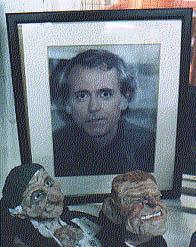
When Tom LeClair asked DeLillo, "Why do reference books give only your date of birth and the publication dates of your books?" he got the answer:
"Silence, exile, cunning, and so on."
It was pointed out to me that this line refers directly to James Joyce's A Portrait of the Artist as a Young Man. About five pages from the end of that book, Stephen makes the following declaration:
I will tell you what I will do and what I will not do. I will not serve that in which I no longer believe, whether it call itself my home, my fatherland, or my church: and I will try to express myself in some mode of life or art as freely as I can and as wholly as I can, using for my defence the only arms I allow myself to use - silence, exile, and cunning.
DeLillo was of course raised a Catholic, and may have felt a strong identification with Joyce's autobiographical work. In Americana on page 143 there is a reference to Joyce:
At Leighton Gage College I wanted to be known as Kinch. This is Stephen Dedaelus' nickname in Ulysses, which I was reading at the time.
For another DeLillo twist on the "silence" phrase, check out the first sentence of Chapter 7 in End Zone.
Douglas Keesey really pushes the Joyce connection (from page 194): "If DeLillo's short stories are his Dubliners, and if Americana is his Portrait of the Artist, then Libra is DeLillo's Ulysses, the masterpiece of his maturity."
